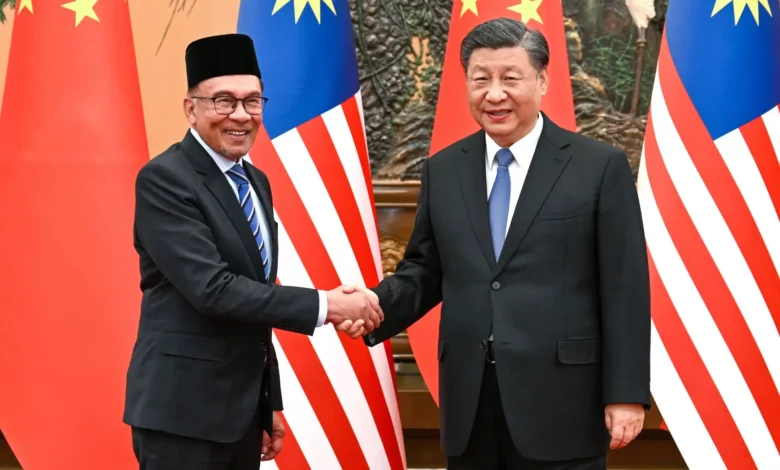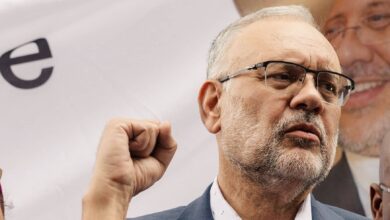
Malaysia’s Prime Minister, Anwar Ibrahim, expressed the nation’s aspiration to join the BRICS alliance.
A bloc representing key developing economies from the Global South, just ahead of a significant visit from Chinese Premier Li Qiang. As part of the visit, Malaysia and China renewed a crucial five-year economic and trade cooperation agreement, further deepening their relationship as the two countries celebrate 50 years of diplomatic ties.
During his visit to Malaysia’s administrative capital, Putrajaya, Li Qiang emphasized China’s readiness to collaborate closely with Malaysia. The Chinese Premier, greeted with a warm reception by Anwar Ibrahim, highlighted China’s commitment to advancing its national development and modernization, a sentiment echoed by Malaysia’s ongoing efforts toward its national progress.
The renewed pact, witnessed by both leaders following private discussions, aims to enhance economic ties by focusing on key sectors such as high-level manufacturing and the digital economy.
Additional agreements were also signed, targeting investment in green development, efforts to combat transnational crime, and enhancements in housing, urban development, and higher education.
The agreements further aim to boost people-to-people exchanges in science, technology, tourism, and cultural cooperation.
While economic cooperation took center stage, Anwar Ibrahim’s remarks before the talks hinted at the broader geopolitical implications. In an interview aired before Li’s visit, Anwar indicated Malaysia’s intention to join the BRICS bloc, pending feedback from the current chair, South Africa.
He expressed support for the bloc’s Global South agenda and criticized the dominant Western narrative on Israel’s conflict with Hamas, suggesting that China’s rise offers a counterbalance in global affairs.
During Li’s three-day tour of Malaysia, discussions are also expected to cover the contentious territorial claims in the South China Sea. Unlike the more confrontational approach of the Philippines, Malaysia has typically favored diplomatic dialogue with Beijing, seeking to maintain strong economic ties despite occasional Chinese incursions near Malaysian waters.
China has been Malaysia’s largest trading partner since 2009, with bilateral trade reaching 450.84 billion ringgit ($98.90 billion) last year.
Malaysia’s Foreign Minister, Mohamad Hassan, highlighted the importance of building on the cooperation established in the 1970s, stating that the long-standing good relations will help both countries manage and resolve issues amicably.
During his visit, Li Qiang is also scheduled to meet with Malaysia’s King, Sultan Ibrahim, and participate in a groundbreaking ceremony for the East Coast Rail Link (ECRL), a key component of China’s Belt and Road Initiative.



